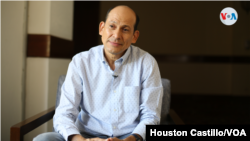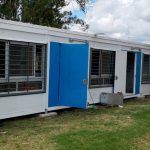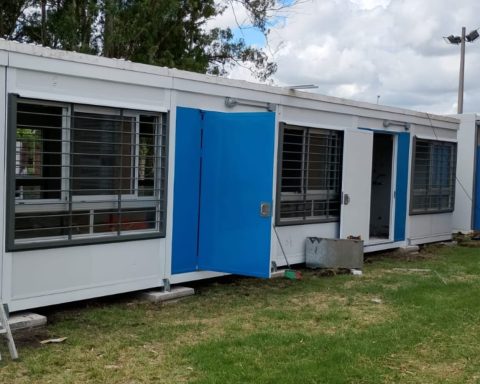At least 208 journalists left Nicaragua and ended up in exile since 2018, in the context of the social and political crisis in the Central American nation, reported Guillermo Medrano, director of the Foundation for Freedom of Expression and Democracy (FLED).
Medrano acknowledged that it is “a big statistic” for a country like Nicaragua “where the list of active journalists does not exceed 500.”
“There are already 208 journalists in exile and that means a catastrophic situation for the independent press in Nicaragua, because the pro-governmentists are still in Nicaragua,” Medrano said.
The government of President Daniel Ortega did not immediately respond to a request for comment.
The vice president of Nicaragua, Rosario Murillo, has branded journalists critical of his management as “chachalacas” who “lie” to destabilize his government and has accused them of “inventing anything to sow terror.”
He has also said that journalists are “evil”, “hypocrites”, “destroyers”, “criminals” and “communication terrorists”.
Most of Nicaragua’s exiled journalists live in Costa Rica, the United States, and Spain.
One of many testimonials
Ricardo Borge left Nicaragua on May 20 after National Police officers came looking for him at his home located in Nandaime, a city located south of Managua.
Borge, who practiced his profession as a journalist in Nicaragua, feared the fate of the communicator Victor Ticay, who was arrested by the government of Daniel Ortega for covering a religious event in the same city where he lives, Nandaime.
“Two months ago I had to leave my country forcibly because my relatives were uncertain about my physical integrity due to my work reporting and for having a critical stance,” Borge told the Voice of America.
The journalist joins the long list of reporters who have left Nicaragua since the start of the protests against President Daniel Ortega in 2018, which were violently repressed, leaving more than 300 dead, according to human rights organizations.
See also: Nicaragua: Stories in exile
“New patterns of repression”
A recent report by FLED reveals that journalism is experiencing its worst moment and that in Nicaragua, out of “a total of 17 departments in the country, there are 3 where independent journalistic practice no longer exists.”
According to the agency, the Ortega government is using new repressive mechanisms against reporters.
“One of the findings that we find is that there are new patterns of repression, such as express trials,” laments Medrano. And he adds that in those trials that are imposed on journalists, they are released, but on the condition that they present themselves to Prosecutor’s Office, to the delegations of the Ministry of the Interior or the National Police to sign.
“It is a new form of criminalization of journalistic practice. We managed to document it mainly in the months of May and April 2023,” he adds.
Previously, the government imposed prison sentences on reporters critical of Ortega and they were accused of “terrorism,” but that has been changing, Medrano says.
Russian propaganda grows stronger
While the list of reporters critical of Ortega leaving Nicaragua grows, Russian media consolidate their presence in the country, such as RT newswhich currently covers official events in the country
On Monday, a reporter from RT who traveled to the city of León, north of Managua, delivered a report within the framework of the 44th anniversary of the Sandinista Revolution.
Hours before, Vice President Murillo had announced the arrival in the country of Daria Yuryeva, head of the news agency Sputnik for Latin America for activities related to the Revolution.
The main print media in Nicaragua no longer circulate, including the well-known El Nuevo Diario and La Prensa, for reasons ranging from the suspension of operations to suffocation due to the retention of raw materials for daily production.
“In Nicaragua there is only space for the official press, which does not do journalism, but rather describe, narrate and read the script that is passed to them from the different instances of the Executive Branch and that is not journalism, because the press asks, investigates, investigates” concludes Medrano.
Connect with the Voice of America! Subscribe to our channel Youtube and activate notifications, or follow us on social networks: Facebook, Twitter and instagram.















